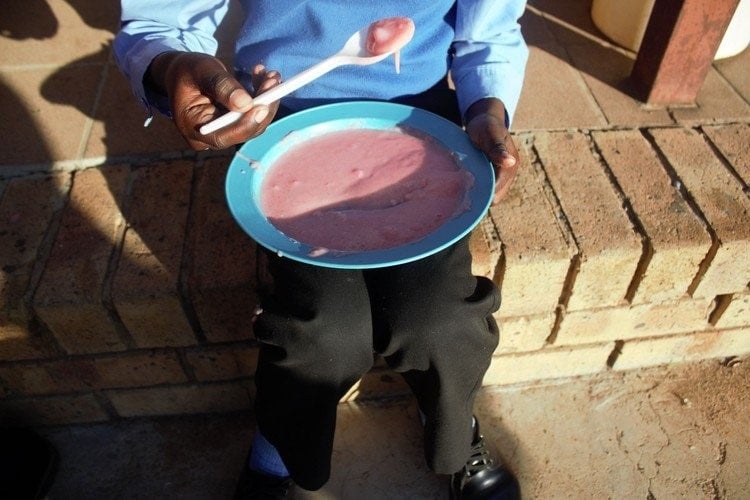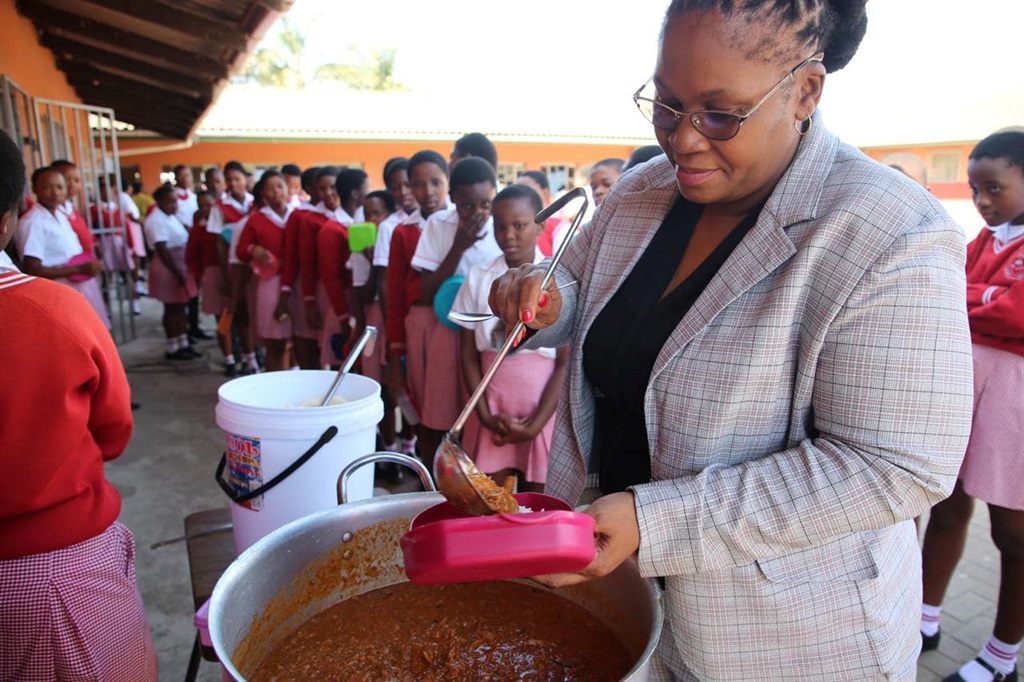
- More than two million pupils in KwaZulu-Natal depend on the National School Nutrition Programme for meals.
- However, a bungle with a supplier resulted in the food scheme collapsing, leaving some pupils starving.
- The provincial education department is still trying to fix the problem, which started at the beginning of the second term on 12 April.
Pressure is mounting for heads to roll and a supplier of a school feeding tender to be stripped from its contract after a massive screw-up to provide meals to poor pupils in KwaZulu-Natal.
Teacher unions have met with teams from Basic Education Minister Angie Motshekga’s office over the collapse of the National School Nutrition Programme (NSNP) in KZN.
Motshekga asked her own team to investigate the supply problems, just days after KZN Premier Nomusa Dube-Ncube announced a full-scale investigation into the matter.
KZN is the largest recipient of the NSNP with a budget of more than R2 billion to cater to about 2.4 million pupils across 5 400 schools in the province.
The meals are meant for some of the poorest pupils in low-fee schools where many come from families who live below the poverty line.
Unions have disagreed with a statement from the department that said 90% of schools had already started receiving meals last week.
“They said there was an improvement and issued a statement saying 90% of schools received food. We are opposed to that statement… That is completely untrue,” said National Teachers’ Union (NATU) president Sibusiso Malinga.
SADTU KZN secretary Nomarashiya Caluza said they were disturbed by the department’s failure to immediately address the crisis.
“This we say because even after numerous calls were made to senior [department] management, schools continue not to receive food.”
Caluza claimed some schools received sub-standard food.
This was confirmed by at least two schools that reached out to News24 to say the food they received was unfit for human consumption.
News24 understands on 8 March the department appointed a single service provider – Pacina Retail – to distribute food in KZN, as opposed to continuing with multiple suppliers.
However, the Special Investigating Unit (SIU) was already looking into the tender in February after a whistleblower claimed that Pacina failed to meet the tender specifications, according to a news article published by the M&G. The news publication further reported that the SIU was unable to assess the allegations because the department was not forthcoming with the requested documentation.
Malinga said the sudden change to one service provider was suspicious.
“We had several suppliers in KZN, why the sudden change and then all this chaos? How was this supplier awarded this tender? We don’t know. Pupils have not been fed for two weeks, where will that money go?”
Caluza said SADTU wanted the contract to be terminated.
“[We] call for the immediate cancellation of the current tender and for the department to embark on a credible and transparent process to allocate the funds directly to schools.”
Public Service Accountability Monitor director Jay Kruus blamed the department for failing to maintain adequate systems to ensure the provision of the meals.
“In our experience of the school nutrition programme, a failure to routinely deliver food to schools is a breakdown of the public finance management system.
“Where there is such a significant breakdown, there has to be consequence management.
“People need to be brought before disciplinary inquiries to understand and get to the bottom of the key causes of this failure and how to prevent it from recurring.”

